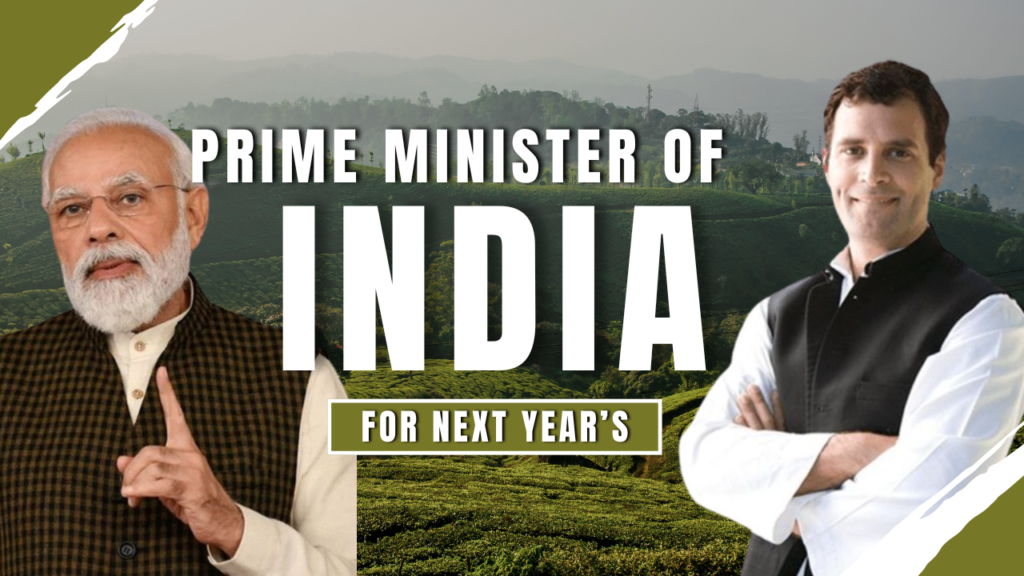The chatter revolves around the upcoming elections and the perennial question: Who will be the next Prime Minister – Rahul Gandhi or Narendra Modi? Amidst the fervor, there’s a palpable desire for change, for a leader who transcends the political divide and works for the welfare of all.
As the world’s largest democracy, India’s general elections are always a significant event, shaping the country’s political landscape and direction for the years to come. With the 2024 general elections on the horizon, anticipation and speculation are running high across the nation. In this blog post, we delve into the key aspects and potential impacts of the upcoming India General Elections 2024.
The Stakes Are High
The 2024 general elections mark a crucial moment for India’s political parties and citizens alike. With a population exceeding 1.3 billion and diverse socio-economic challenges, the outcome of these elections will significantly influence the country’s trajectory in various areas, including governance, economy, social policies, and international relations.
One voice speaks of communal harmony, advocating for a leader who can unite Hindus and Muslims, underscoring the need for inclusive governance. Another voice laments the rising cost of living, expressing disillusionment with the current administration’s economic policies.
Political Landscape
The political landscape leading up to the 2024 elections is dynamic and ever-evolving. Major political parties such as the Bharatiya Janata Party (BJP), Indian National Congress (INC), and regional parties like the Aam Aadmi Party (AAP), Trinamool Congress (TMC), and Bahujan Samaj Party (BSP) are gearing up for intense electoral campaigns. Each party is vying to secure power or maintain its foothold in different states and regions.
The discourse shifts to the efficacy of past governments, with some attributing economic woes to historical mismanagement, while others hold the present leadership responsible for failing to alleviate the burdens of inflation and unemployment.

What are the Key Issues of Elections?
Several critical issues are expected to dominate the electoral discourse in 2024. These may include economic recovery post-pandemic, unemployment, healthcare infrastructure, education reforms, agricultural policies, national security, environmental sustainability, and social justice initiatives. The ability of political parties to address these issues effectively and resonate with voters will play a pivotal role in shaping electoral outcomes.
Amidst the rhetoric, one sentiment rings clear – the yearning for a leader who embodies integrity, competence, and empathy. There’s a consensus that mere rhetoric won’t suffice; actions speak louder than words.
Role of Technology and Social Media in elections
The role of technology and social media in elections has grown exponentially in recent years. Platforms like Facebook, Twitter, and WhatsApp have become battlegrounds for political messaging, propaganda, and misinformation. Political parties are leveraging digital tools for voter outreach, campaign fundraising, and mobilization efforts. However, the spread of fake news and polarization poses significant challenges to the integrity of the electoral process.
The discussion delves into the need for transparency in governance, with calls for accountability and clarity on budget allocations. Questions linger about the fate of public funds and the efficacy of policies aimed at socioeconomic development.
Voter Turnout and Participation
Voter turnout and participation are fundamental to the democratic process. The 2024 elections present an opportunity for Indian citizens to exercise their right to vote and make informed choices about the country’s future. Increasing voter awareness, especially among youth and marginalized communities, is essential for fostering inclusive and representative democracy.
International Impact of elections
India’s general elections have implications beyond its borders, especially in the context of geopolitics and international relations. The outcomes of the 2024 elections may influence India’s stance on global issues, its diplomatic relations with other countries, and its role in multilateral forums such as the United Nations and G20.
As the debate unfolds, it becomes evident that the quest for a new leader is not merely about personalities but about principles and policies. It’s about envisioning a future where every citizen has equal opportunities and access to essential services.
The India General Elections 2024 are poised to be a watershed moment in the country’s democratic journey. As political parties gear up for intense campaigning and voters prepare to cast their ballots, the future of India hangs in the balance. It is imperative for all stakeholders – political leaders, citizens, civil society organizations, and the media – to uphold the principles of democracy, transparency, and accountability throughout the electoral process. By doing so, India can navigate its way towards a brighter and more prosperous future for all its citizens.
Who is new PM in India?
Prime Minister Narendra Modi, in an interview to The New Indian, spoke on a range of subjects including the ongoing Lok Sabha elections, his government’s zero tolerance towards corruption, and more.
How many times Modi become prime minister?
Narendra Damodardas Modi (Gujarati: [ˈnəɾendɾə dɑmodəɾˈdɑs ˈmodiː]; born 17 September 1950) is an Indian politician who has served as the 14th prime minister of India since May 2014. Modi was the chief minister of Gujarat from 2001 to 2014 and is the Member of Parliament (MP) for Varanasi.
Pingback: NEET 2024: India's Biggest Exam Fraud? An Examination of the Controversy - trending4india